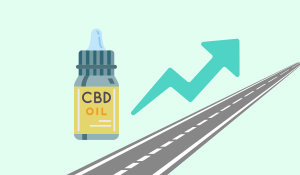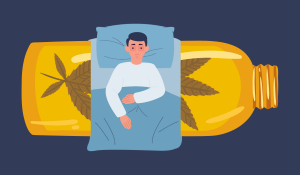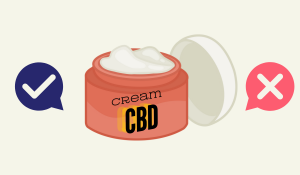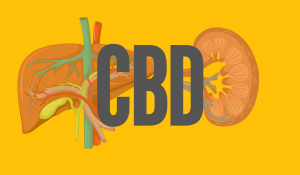The signing of the Agriculture Improvement Act of 2018, commonly known as the Farm Bill, was a watershed moment. It legalized the cultivation and sale of hemp at the federal level, removing it from the Controlled Substances Act. This change opened doors for the CBD industry but also led to regulatory complexities.
Here’s where it gets tricky. While hemp-derived CBD is federally legal, states have their own rules:
Always check your state’s regulations to ensure compliance.
Planning to travel with CBD? Hold your horses. International laws vary widely:
What’s legal here might not be elsewhere, so research is essential before crossing borders.
As of now, the FDA has approved only one CBD product:
This approval was a significant step, acknowledging CBD’s potential in medical treatment.
Walk into any store, and you’ll find CBD products galore—oils, gummies, creams, you name it. But are they FDA-approved? Nope. The FDA has not approved CBD for use in dietary supplements or food, leading to a gray area where products are sold but not officially sanctioned.
Companies can’t make unverified health claims about CBD. The FDA is cracking down on misleading labels to protect consumers from false promises. For instance, claims that CBD can cure cancer or COVID-19 are not only false but illegal.
CBD is touted for a myriad of health benefits:
However, more extensive clinical trials are needed to confirm these effects.
Like any substance, CBD isn’t without risks. Side effects can include:
CBD can also interact with other medications, such as blood thinners, so it’s crucial to consult a healthcare professional.
Not all CBD products are created equal. Lack of regulation means:
Third-party lab testing is a good indicator of a product’s quality.
The FDA has sent numerous warning letters to companies making false claims or selling CBD as a dietary supplement. These letters serve as a reminder that the agency is monitoring the market closely.
These enforcement actions are shaking up the industry, forcing companies to:
Research is underway to unlock CBD’s full potential. Areas of interest include:
These studies could pave the way for new FDA approvals.
The FDA is considering new regulations to address:
Public hearings and stakeholder input are part of this ongoing process.
Stakeholders are hopeful for clearer guidelines. After all, clarity helps everyone:
Access varies by state and federal laws. Understanding local regulations helps consumers:
Misinformation is rampant. Educate yourself to make informed decisions:
Prices are all over the map due to:
As regulations evolve, so might the cost and availability of CBD products.
Manufacturers are in a tough spot, balancing innovation with compliance:
Regulatory hurdles also open doors:
Investors are eyeing the CBD market, but caution prevails:
Legal battles are shaping the CBD landscape:
Court decisions are setting precedents:
If you’re in the industry:
The FDA currently approves only one CBD product, Epidiolex, and maintains strict regulations on other CBD items, especially concerning health claims and labeling. Over-the-counter CBD products are not FDA-approved.
Yes, but the legality depends on whether the CBD is hemp-derived and complies with state and federal laws. Always check local regulations to ensure you’re on the right side of the law.
No, as of now, the FDA hasn’t approved any over-the-counter CBD products. Consumers should exercise caution and be wary of unverified health claims.
Potential risks include side effects like dry mouth, fatigue, and interactions with other medications. Quality control issues may also lead to consuming contaminants. Consult a healthcare provider for personalized advice.
Future regulations could bring more clarity, possibly easing restrictions or tightening them, impacting everything from manufacturing to sales. Clear guidelines would help consumers and businesses alike.
The FDA issues warning letters to companies making unverified health claims or violating labeling and marketing regulations to protect consumers from misleading information and ensure public safety.

Therapeutic Uses of CBD Managing Chronic Pain with CBD Struggling with chronic pain? CBD might help. Studies suggest it can reduce inflammation and alleviate discomfort,...
Read More
Cannabis has been used for millennia to treat numerous health conditions. Current research offers promising results on the effects of CBD oil on breast cancer.
Read More
If you've ever wondered about using CBD for insomnia, you should know how CBD helps anxiety, stabilizes your sleep-wake cycle, and makes falling asleep easier.
Read More
CBD-infused salad dressing: Imagine a fresh, crisp salad enhanced with a light, herbaceous vinaigrette containing your daily dose of CBD. To create this, you’ll need...
Read More
1. What Is CBD and Why Is It a Game-Changer for Skin Health? CBD (cannabidiol) is a natural compound extracted from the hemp plant. Unlike...
Read More
Breakthrough #1: CBD’s Role in Chronic Pain Relief Chronic pain robs people of precious moments. A 2021 study in the Journal of Pain Research highlights...
Read More
Understanding Arthritis Pain Arthritis is a chronic condition that affects daily activities, from opening jars to taking walks. Here’s a look at the two most...
Read More
Types of Pain CBD May Alleviate CBD shows promise in managing various types of pain: CBD vs. Traditional Painkillers Traditional painkillers like opioids can be...
Read More
CBD Cream Side Effects – Focusing on Topical Applications How CBD Creams are Made Ever wondered how CBD creams come to life? It’s a fascinating...
Read More
Concerns About Potential Side Effects on Liver and Kidneys Despite its growing acceptance, concerns about CBD’s effects on vital organs like the liver and kidneys...
Read More